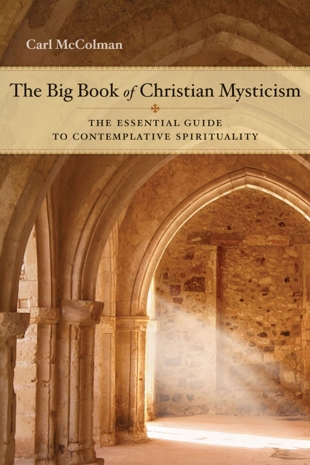"It's like trying to put love in a bottle. It just can't be done. To begin with, love is not something that can be pinned down to a specific point in space and time. It is a spiritual reality that can never be defined, or enclosed or 'captured.'
"Much the same is true of mysticism. Its essence simply cannot be captured in human language — indeed, not even by the most sublime reaches of human thought. We can use language to suggest mysticism — to allude to it, to point to it, to create poetic metaphors or analogies about it that ring true — but these linguistic interpretations are ultimately like attempts to empty the ocean with a teaspoon. Like God or spirituality or heaven, mysticism takes us beyond what the most eloquent and poetic language can ever express. It pushes you to the limits of your imagination and then says, 'take another step.' And another, and another.
"Dr. Seuss once wrote a book called On Beyond Zebra! that explored all the meta-letters that exist in his imaginary alphabet, beyond the twenty-six of the standard English alphabet. Mysticism is like Seuss's alphabet. It pushes beyond the normal boundaries of human thought, human logic, and human rationality and knowing. It goes beyond the limits of philosophy, theology, psychology, and science. But whereas Dr. Seuss was just playing make-believe, mysticism points to something that countless witnesses, in cultures all across the world and in every age from the dawn of recorded history, insist is utterly real — maybe even more real than the universe and consciousness we normally inhabit.
"You don't have to be an expert in etymology to figure out that the word 'mysticism' is related to the word 'mystery.' Thus, the most we can hope to do is to use our feeble language to try to catch tiny glimpses of that heaven-sent something — that mystery — the great visionaries and saints have described as an experiential relationship with God. Maybe your heart will register a thrill of recognition as you read their writings, giving you some sense of what mysticism is. But, like love in a bottle, as soon as you try to put it into your own words, mysticism unfolds itself into a variety of paradoxes and seemingly contradictory truths that leave you as confused and befuddled as ever.
"Christian mysticism is all about having a 'relationship with God.' Indeed, this is its bedrock principle. In some non-Christian forms of mysticism like Zen Buddhism or Taoism, God is not part of the equation at all. In these traditions, it is possible to be a mystic and an atheist — or at least, an agnostic. However, even some of the most profound Christian mystics talk about how unknowable God is. How can you have a relationship with something or someone who is fundamentally unknowable? And yet, that is where mysticism takes you. When we talk about mysticism, we can use words that try to make sense of the mystery — 'God,' or 'the Absolute,' or 'the Ultimate Mystery' — until the words themselves fail us. Then we are left with only silence, facing the mystery again, and perhaps scrambling to find new words, new concepts, and new ideas.
"The way I talk about mysticism will make the most sense in a Christian context — even when I'm discussing mysticism in general. After all, this is a book about Christian mysticism. But even within a specifically Christian framework, mysticism has an unnerving tendency to contradict itself and deconstruct itself in bewildering and playful ways. That dynamic gets even more complicated when we begin to talk about 'world' mysticism, which is not limited to any one religious or spiritual tradition. As a dynamic spiritual force that has been at work in the lives of Christians throughout the history of the faith — and one that continues to show up in surprising ways among the faithful even today — mysticism remains perplexing and uncontrollable; it plays out in people's lives in unexpected ways.
"The mystics themselves have long recognized the ultimate 'unknowability' of this indefinable thing we call mysticism. Indeed, I warn you that I will fail utterly to explain what mysticism is. I am philosophical about that because, as a Christian, I know that grace is always present, even in the midst of our failures. So why, you may ask, do I try? As the mountain climber said when asked why he climbed mountains: 'Because it's there.' I write about mysticism, not because I have it all figured out (I don't), or because I think my book will help you figure it all out (it won't), but because I hope my attempt may contain some small glimmers of insight or encouragement that you can use on your own journey into the Ultimate Mystery."
